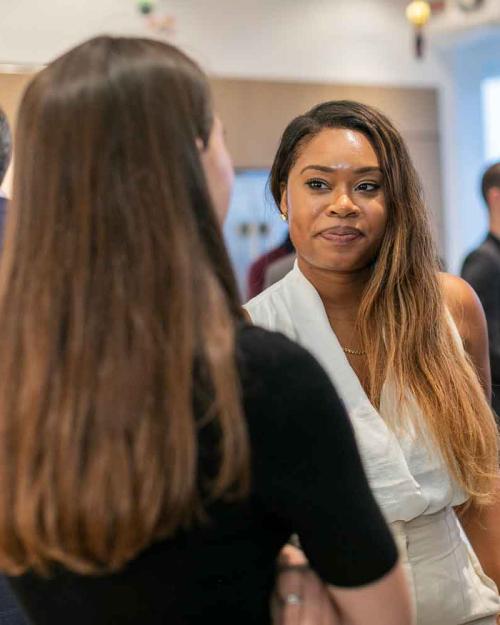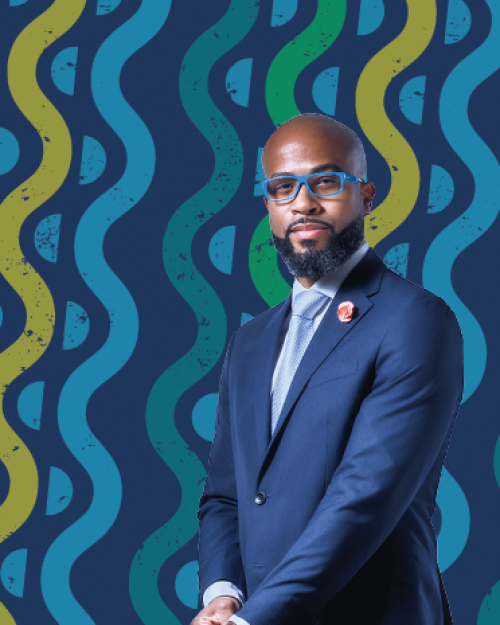An all-day Cornell conference open to the public will help hiring professionals and others learn ways to create a more inclusive workforce — thinking beyond the traditional definitions of that phrase.
Speakers will focus on ways that companies and organizations can recruit and retain employees from a variety of marginalized groups — including underrepresented minority groups and those who have impacted by the criminal justice system, who have disabilities, served in the military, or who have been disenfranchised due to other stigmas or stereotypes.
“Can You Hear My Voice? The Impact of Untapped Marginalized Groups in the Talent Management Space,” scheduled to begin at 10 a.m. April 5, will offer creative, actionable ideas for anyone who makes hiring decisions or who has an interest in creating a more inclusive workforce, said Donna Lynch-Cunningham, director of human resources for the College of Arts & Sciences and the organizer of the conference.
U.S. Department of Labor statistics show that there were more than 1.7 open jobs per unemployed people at the end of 2021 and there will be a projected shortage of 63 million workers by 2030.
“Even with these high unemployment rates, marginalized groups faced extraordinary challenges in securing employment opportunities. In addition, the pandemic made securing employment for these groups almost an impossibility and had widespread and disproportionate impact on them,” Lynch-Cunningham said. “This conference was conceived with the idea of shining a spotlight on some of these groups, allowing attendees the opportunity to ‘hear the voices’ of those doing work in these communities, and highlighting some areas where we as a community, with the use of some innovative approaches, can potentially make a difference.”
The event will feature keynote speaker Shaun J. Fletcher, a strategist and consultant on diversity-related matters and a professor at San José State University. A former communications leader at Apple, Fletcher has worked with private and public organizations on strategic messaging, executive communications, employee engagement, diversity and inclusion and brand management and development.
“Throughout my corporate career, the lack of diversity was staggering to experience, but was even more challenging to navigate mentally and emotionally,” Fletcher said. “It impacted me significantly, but I also noticed how it was adversely impacting other historically marginalized and disenfranchised groups around me. Many of us felt like tokens and certainly didn’t feel like we were the only persons of diverse communities who were qualified to be in those spaces; it seemed as though we were the only ones allowed to be there.
“I’ve carried the sentiment I felt from early in my career with me as motivation to make an impact.”
Other speakers include:
- Kenneth Clarke, Sr., director, Tompkins County Office of Human Rights
- Debra Howell, director of IT Operations, Cornell Library
- Timothy McNutt, director, Criminal Justice and Employment Initiative, ILR School, Cornell
- Erin Sember-Chase, Diversity, Equity, and Inclusion Learning Consultant, Cornell
Speakers will discuss the benefits of tapping into various marginalized groups and engaging them in the talent management space; offer case studies, success stories and progressive ideas for hiring; and share tools and resources for attracting, supporting, retaining and including new members of the workforce once hired.
There will also be a panel discussion and Q&A session in the afternoon.
“Employment enhances the dignity and worth of human beings. It provides a sense of meaning and purpose and, when in a non-exploitative workplace and paid a living wage, enables individuals to provide for the most basic of human needs: food, clothing, shelter, among other things,” Clarke said. “This premise is supported by Articles 24 and 25 of the Universal Declaration of Human Rights, which guides human rights work.”
McNutt will share a new tool, the Yang-Tan Restorative Record, which helps justice-impacted individuals create a more well-rounded picture of their qualifications for employment.
“The traditional hiring process, involving a cover letter, a resume, an interview and then a background check, creates this risk-based assessment that excludes millions of workers,” he said. “{The restorative record} highlights research-based employability factors, while also portraying a more holistic picture of an employee, not just narrowing them based on their criminal record.”
Howell — a veteran herself who is also chair of the Cornell Veterans Colleague Network Group and the veterans’ representative on Cornell’s Employee Assembly— said she will spend much of her talk focusing on the benefits of hiring veterans.
“Higher education is often perceived as an unfriendly place for veterans in the workforce because of some biases that people may have about veterans,” she said, but companies find that veterans often turn out to be their most dedicated, loyal and hard-working employees.
“I hope that people gain excitement about hiring veterans, that it becomes a priority for them and that others appreciate the veterans they may already have in their workforce,” she said of plans for her talk.
Erin Sember-Chase, as a person with a disability since birth, said that she experienced discrimination, ableism, stigmas and negative treatment in school and at work. And she noticed that “disability” was typically not included in the diversity and inclusion conversations and efforts at workplaces in the same way that other diverse populations were.
“It became important to me to use my voice and whatever positions I’m in to try and elevate disability into those conversations and efforts much more,” she said, “to highlight how we as a society need to shift our perspective of disability, recognize how we are constructing our environments to be exclusive rather than inclusive of persons with disabilities, and make more effort to shift to a disability inclusive mindset and practice.
“Otherwise, we are losing out on a significant population of our potential students, workforce and contributing members of society.”
The conference, a collaborative effort among several colleges and units at Cornell, is led by Lynch-Cunningham; Lawrence Mancuso, assistant dean for human resources in the School of Industrial and Labor Relations; Sandy Dhimitri, assistant dean for human resources in the College of Human Ecology and Carol Graubard, interim human resources director for eCornell. This initiative is funded by a grant from the Belonging at Cornell framework.
View a recording of the event:




